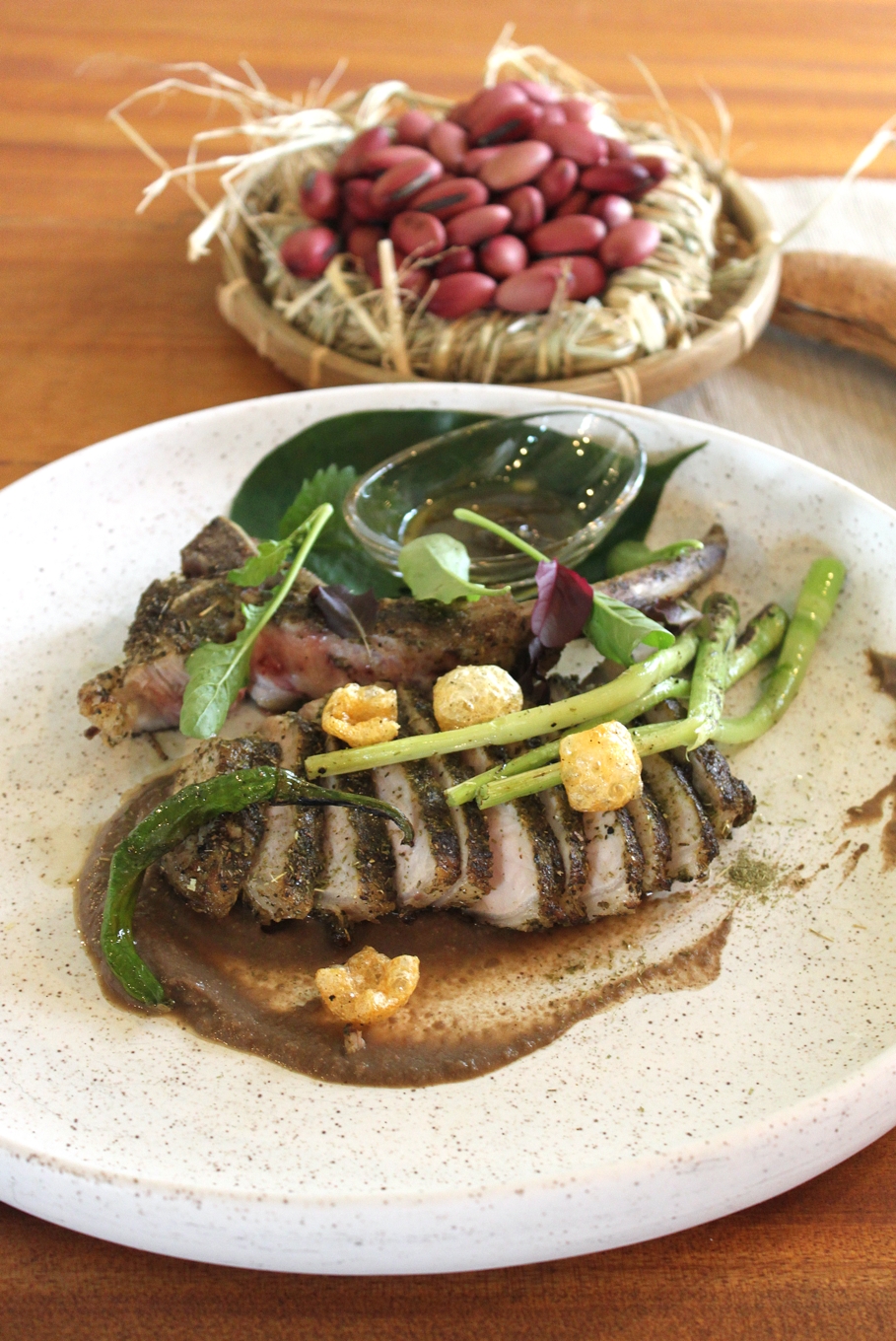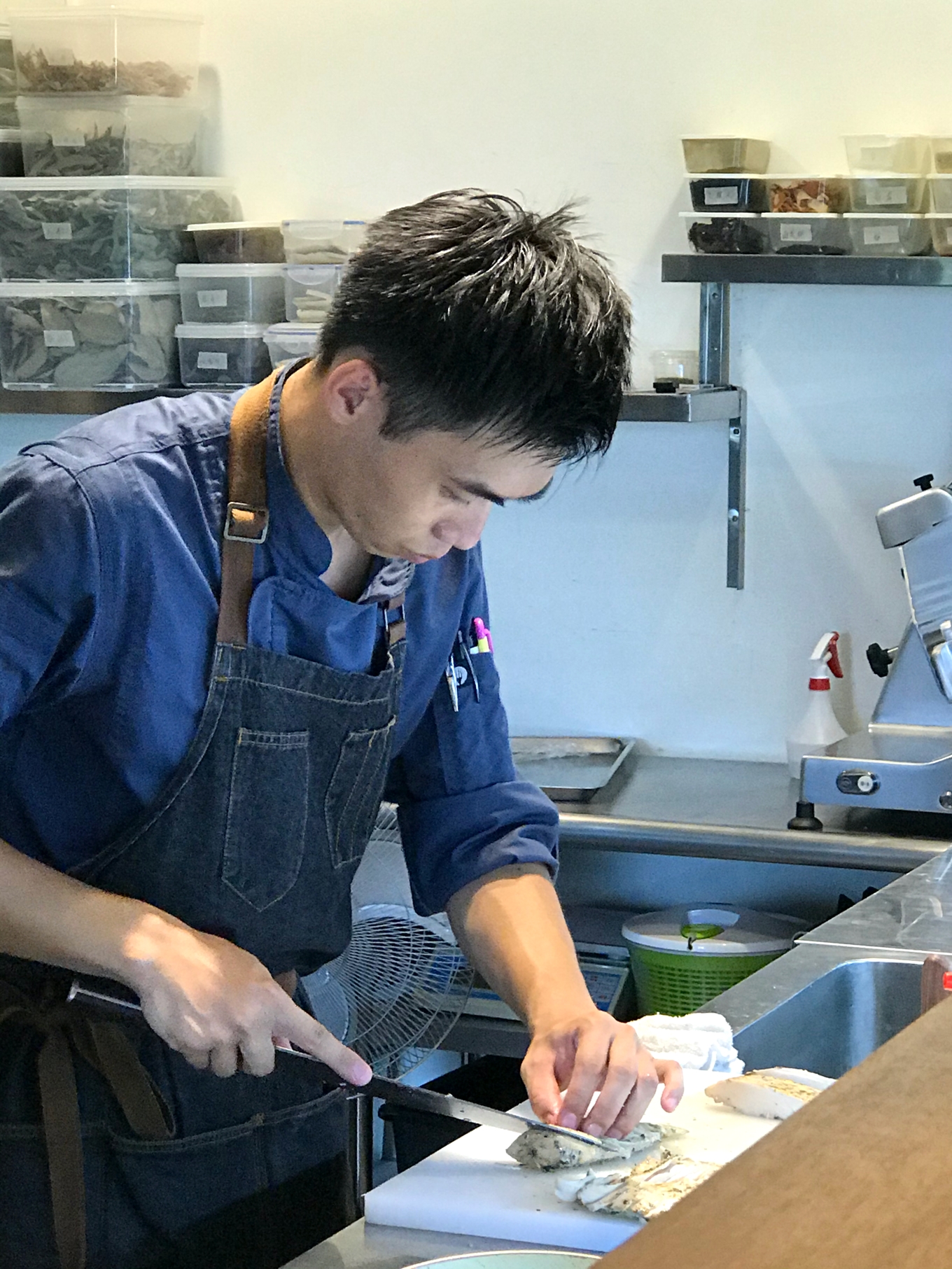What is Ami cuisine? Dr. slash joined hands with Ami chefs to explore the essence of "bitterness for pleasure" cuisine.
0 sharing
After seven years of studying in Germany, Wu Jinyi became the last disciple of several "god-man" professors, so he was able to integrate the quintessence of issues such as agricultural landscape, agricultural development, environmental sustainability, and territorial planning. to introduce long-awaited knowledge genealogies and guidelines for Taiwan. After getting a degree, Wu Jinyi gave up his high salary of 6000 euros a month and returned to Taiwan from Germany. "I went abroad in order to return home, so why did I use what I learned abroad to help foreigners?" He said.
Establish Ami cuisine and express the cultural significance of ingredients in the right way.
After returning to Taiwan, her godmother has moved to Hualien City to enjoy her family and no longer runs a table. Wu Jinyi rented a house in Taiba alone and helped the county government do some planning review work. Later, the landlord wanted to take back the rental house, which bothered him to complain to the prince when he returned to Zhongli for the Spring Festival. "the prince instructed to see XX, there will be a house suitable for me." Wu Jinyi marveled at the fact that the prince had also been digitized, and turned on the computer to check it, only to know that the old house facing the Cacora'an holy mountain of the Matai saddle tribe was for sale. Even if New Year's Eve, who was on holiday in various industries, immediately called Fang Zhong and bought the dream house after several twists and turns.
That was in 2014. After starting with the two-story old house, Wu Jinyi slowly sorted out the second floor as a home, and the idea of opening a restaurant on the first floor also grew. There are many precedents for using food to promote Ami culture, but for Wu Jinyi, they only use Ami ingredients, not Ami cuisine.
No matter what nation it is, it is natural to rely on mountains and water to find food. It cannot be said that using those ingredients is one of that kind of food. "the most important thing in cooking is taste. The same ingredients. Why the Ami cook in this way is the embodiment of culture." He stressed again and again.


Tomahawk pork chops are pickled with fine powders such as moon peaches and can be eaten with betel nut leaves and perilla. The most special is the slightly sour mashed beans, which can get rid of the pork chops. (Yang Yuyun / Photography) the true meaning of Ami's bitterness: boil out the sweetness in bitterness and moisten in astringency.
For example, Amis like bitterness, boil fish with internal organs, cook meat with bile, bitter eggplant with "the highest point of bitterness" and all kinds of wild vegetables must present the original taste, and the right taste is to boil sweet and astringent in bitterness. This kind of self-made cuisine should be regarded as a special cuisine. When people use cuisine to cover up the bitter and astringent taste, what is actually covered up is the cultural significance of the Ami people.
It is not easy to confirm such a direction, and it is even more difficult to find a partner who can cooperate. Wu Jinyi waited for five years, and the most important soul of the restaurant, the head chef, did not appear until last year.
Looh, the Ami chef, has a professional background. Both the higher vocational education and the University of Science and Technology majored in catering and began to specialize in French cuisine from the third year of higher vocational education. He worked in a restaurant for as long as he studied. After leaving the army, he worked as a cook in a French restaurant in Taipei for four years, with the air of being a teenager. However, the bustling city is full of flowers, for Looh, it is the only lack of hometown flavor, Pangcah cuisine taste.
Raised by his grandparents in his childhood, Looh wanted to return to the tribe last year, trying to recreate the essence of Ami cuisine along the vines of memory on the tip of the tongue. "what I can't stand most is to call the dishes of hot stir-fried restaurants like Shansu fried Douchi and peeled pepper fried beef as indigenous cuisine." He frowned and complained.


Looh hopes to highlight the characteristics of ingredients and promote the cultural significance of Ami cuisine. (Yang Yuyun _ Photography) Ami chefs return to their hometown to reproduce the essence of Ami cuisine
Looh said that the Ami are "herbivores" who love bitterness for pleasure, and their meals must be bitter and astringent. Even if you restrain the degree of suffering, you have to have a bitter bottom rhyme. His idea coincided with Wu Jinyi. Once the matchmaker, they decided to tie the knot. They took root in the Taiba tribe and jointly gave birth to a child called Aredetay.
In Ami culture, when they eat delicious food, they will praise "arede" (plus tay becomes a noun). This feeling of good taste has become the name of their shop. At first, Wu Jinyi and Looh explained the idea of opening a shop to tribal language teachers and the elderly.
- Prev

He originally wanted to be the first Han chef in the field of civilian-run tables, but he became a doctor of rural planning and Wu Jinyi's dream of Ami French cuisine.
He originally wanted to be the first Han chef in the field of civilian-run tables, but he became a doctor of rural planning and Wu Jinyi's dream of Ami French cuisine.
- Next

Originally wanted to be the first Han chef in the field of civilian-run tables, but became Dr. Liu de, Wu Jinyi then slashed ─ Ami French cuisine
Originally wanted to be the first Han chef in the field of civilian-run tables, but became Dr. Liu de, Wu Jinyi then slashed ─ Ami French cuisine
Related
- A course of planting techniques and methods on how to grow carrots
- How to plant the latest tulips?
- Is it better to pick tea in the morning or in the afternoon? When is the best time for tea to be picked? what is the third or fifth tea?
- Launch Yuanxiao Happy combination Haocha + Tea Yuan healthy Taste
- Penghu Tourism "Fireworks 20 Parade with You"
- 2022 West Lake Happiness holds "Digital Revitalization Voucher" and draws iphone13 and laptop.
- Banqiao Fuzhou social houses are designed to change start-up combined with police elimination to create a safe and livable environment
- The convenient measure of "mechanical weeding" in Xinbei has been abused and the Agriculture Bureau has imposed heavy penalties on the illegal land consolidation.
- Changgeng University Joins Hands with Four Memory Factories to Rescue Memory Talent Shortage
- The list of Taiwan's top 100 MVP managers is listed by the Director-General of the Farmers' Association of Sanxia District.

